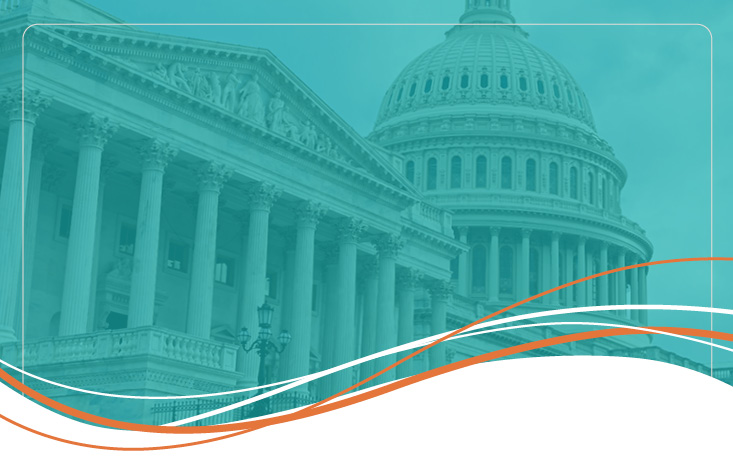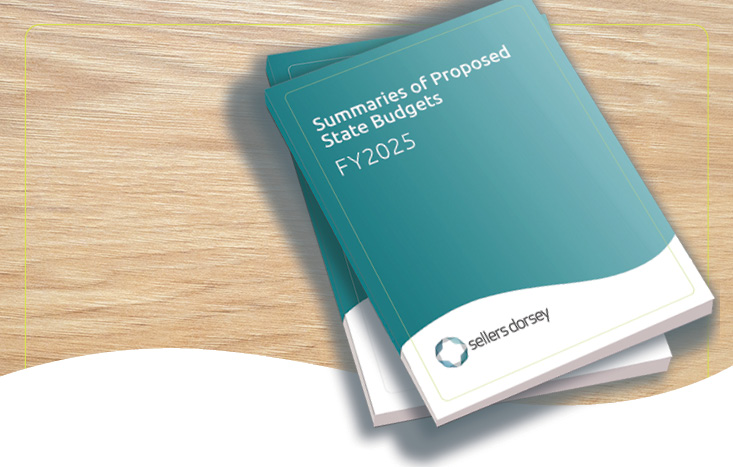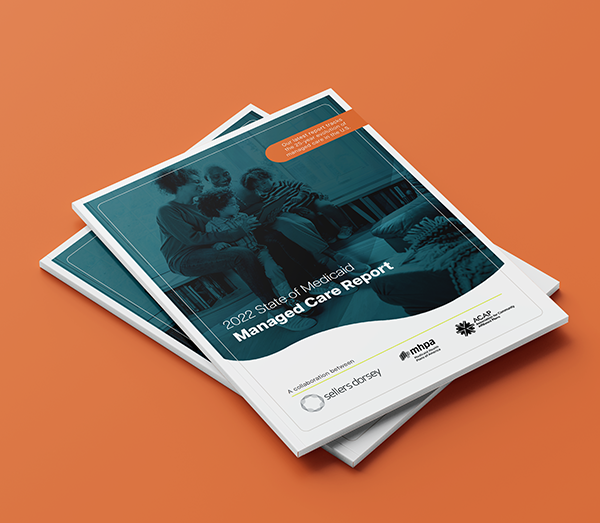Preserving Supplemental Funding During a Public Health Emergency
 Since hospital supplemental Medicaid funding is often tied to utilization, many providers recognized that they were running the risk of having reduced payments due to lower utilization rates in 2020. A July 2020 study by John Hopkins University researchers estimated the monthly cost of cancellation of all elective procedures to be a loss of $16.3 to $17.7 billion per month in revenue and $4 to $5.4 billion per month in net income for U.S. hospitals. Medicaid is a significant payer whose beneficiaries make up a substantial portion of patients included in this estimate.
Since hospital supplemental Medicaid funding is often tied to utilization, many providers recognized that they were running the risk of having reduced payments due to lower utilization rates in 2020. A July 2020 study by John Hopkins University researchers estimated the monthly cost of cancellation of all elective procedures to be a loss of $16.3 to $17.7 billion per month in revenue and $4 to $5.4 billion per month in net income for U.S. hospitals. Medicaid is a significant payer whose beneficiaries make up a substantial portion of patients included in this estimate.
By proactively obtaining approval from the Centers for Medicare and Medicaid Services (CMS) to amend current Medicaid supplemental funding programs in response to the COVID-19 pandemic, some states were able to maintain expected supplemental payments for program years disrupted by the public health emergency (PHE). These COVID-19 amendments allowed providers to continue providing high-quality care to Medicaid patients with a degree of financial stability. Now, the lessons learned during the initial wave of the COVID-19 pandemic can be used to provide guidance for maintaining some level of fiscal certainty during future public health emergencies.
 Key lessons learned from COVID-19 amendments
Key lessons learned from COVID-19 amendments
At their core, COVID-19 amendments to CMS-approved supplemental payment programs have mitigated the loss of expected revenue so that hospitals could continue to provide access to care for Medicaid patients. This preservation of funding has helped providers modify rather than abandon programs that had already been planned and approved. The resulting financial stability begets consistency for hospital staffing and continued access to care for patients despite the impact of the PHE on hospitals’ operating environments.
Fortunately, CMS has been amenable to necessary adaptations to existing programs. Clear, open communication among providers, state Medicaid agencies, and CMS has been an essential component to preserving funding during the pandemic. However, not all organizations have been proactive in securing these amendments. This hesitation is due to the uncertainty caused by the PHE layered on top of providers’ existing misconceptions about how Medicaid funding works. The key lessons learned—described below—from our experience assisting with Medicaid financing programs during the PHE can help organizations move more swiftly to secure funding assistance in the event of future emergencies.
 1. Preservation of funding is about protecting access.
1. Preservation of funding is about protecting access.
COVID-19 amendments are contingency plans that are built onto existing programs. Thus, some providers have been successful in preserving supplemental funding during the PHE by pursuing amendments. COVID-19 amendments function as guardrails, guaranteeing a certain amount of funding for providers if the PHE inhibits their ability to meet preestablished utilization criteria.
While some states might approve amendments proactively, in case utilization should decrease, others require data showing actual depressed utilization before they will even consider a proposed amendment. In either case, early submission to CMS is preferable because it provides security against loss of expected revenues.
It should be noted that funding preserved via amendment during the PHE is intended to ensure continued access to care for Medicaid patients. These amendments do not present a unique opportunity for revenue enhancement, as they only exist to preserve access and maintain system capacity.
 2. Being proactive reduces uncertainty for providers and allows them to operate reliably.
2. Being proactive reduces uncertainty for providers and allows them to operate reliably.
Unfortunately, some states didn’t submit COVID-19 amendments early enough to CMS, so they sometimes found themselves waiting for CMS approval. Such a scenario delayed payments for end of the program year for states that didn’t meet CMS criteria of the original program. Fortunately for providers in Kentucky, the Commonwealth acted quickly and decisively. The Kentucky Department for Medicaid Services (DMS) was among the earliest organizations to request approval from CMS to maintain the funding incorporated in its rate certification for supplemental payments for the duration of the PHE.
The PHE threatened the anticipated funding level of an existing supplemental payment program in Medicaid Managed care. A program that benefitted the two largest public Medicaid providers in Kentucky. Sellers Dorsey supported the drafting and submission of a COVID-19 amendment to CMS to ensure that both providers maintained the levels of critical funding and the enhanced patient outcomes that the program was designed to deliver. By working with Sellers Dorsey to move quickly to develop and submit an amendment that would benefit all providers, DMS was able to secure CMS approval for the COVID-19 amendment within three months and secure critical supplemental funding.
 3. There’s no singular roadmap for preservation of funding during a PHE.
3. There’s no singular roadmap for preservation of funding during a PHE.
States and providers serve unique populations with unique health and financial needs, so there is no single playbook to preserve funding. It therefore benefits organizations to reach out to a partner who can create a custom plan to move forward along the path that makes the most sense for them.
Sellers Dorsey has helped numerous organizations across the country identify and realize unique opportunities to access supplemental Medicaid funding. This work includes guiding providers and Medicaid agencies through the uncertainty they face in the event of an emergency such as the COVID-19 pandemic. Our responsiveness and diligence in managing these programs has helped clients continue to adapt to dramatic changes in their environments, which protects their ability to operate and deliver services to individuals who need it.
Organizations looking to access and preserve critical funding in Medicaid to support their health care mission and ensure access to care can contact Sellers Dorsey.




